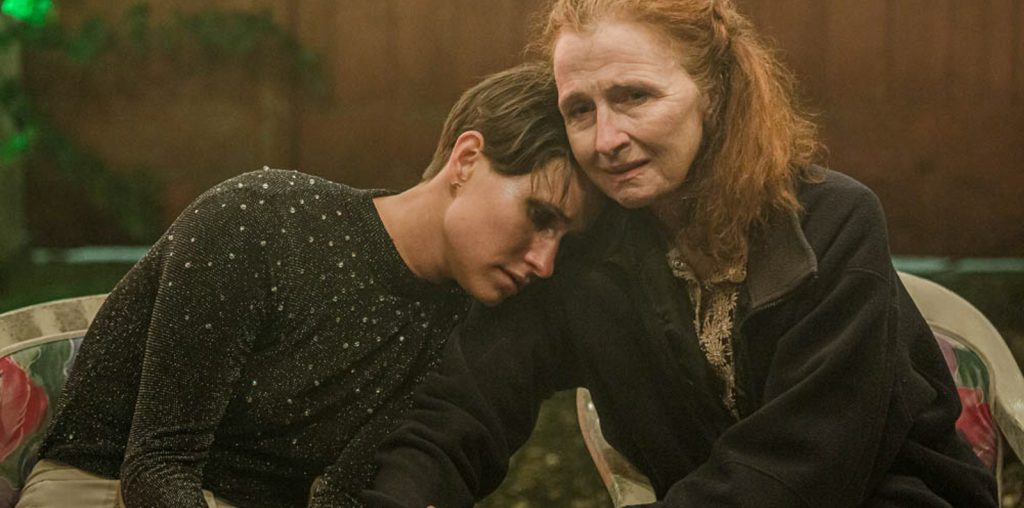
Wood was an unknown, prepubescent whippersnapper when he first attracted the attention of filmgoers in movies like “Avalon” and “Internal Affairs,” back in 1992. And despite his success with the “Rings” projects, some low points haunt his resume, as well. Savaged by critics was Richard Donner’s “Radio Flyer,” a 1992 drama about children escaping abuse. 1994’s “North,” directed by Rob Reiner, enraged Roger Ebert to the boiling point. “I hated this movie,” Ebert ranted. “Hated every simpering stupid vacant audience-insulting moment of it.” As a direct participant with an insider’s perspective, Wood is asked if critics were fair to demonize these movies.
“I think there is merit in both of those films,” he asserts. “There are things that I really love about both. Do I think they both work really well? I dunno. Not really. I mean, I really liked ‘Radio Flyer’ and think it’s a beautiful movie. But I tend to not look back, and worry about how something’s received. Obviously, what’s really important is that the film works on some level. As an actor, I wanna be part of the fabric of the film and hope that it all comes together. Sometimes it doesn’t. Ultimately, all you can do as an actor is the best you can do, and hope for the best, and it doesn’t always turn out. It can be disappointing sometimes, on a personal level – having high hopes for something that you believed in.”
Then, there are Wood’s other, more respected “small” films that hint at the actor’s indie sensibility. Although “Rings” might have grossed billions, thoughtful dissection of the youthful star’s filmography suggests that Wood seeks out projects that will maintain staying power for decades, even if they don’t top the box office charts on opening weekend. Take 1997’s “The Ice Storm,” which grossed under $8 million in America, but has slowly built momentum as one of the most respected films of the past decade. A profoundly sad, quietly devastating look at how casual sex and free-flowing booze destroy a Connecticut family during the early seventies, “The Ice Storm” pinned director Ang Lee onto the map before his more visible success with “Crouching Tiger, Hidden Dragon.”
“It’s a really revered film,” Wood says of “The Ice Storm.” “It’s a difficult film, too. I think it’s a beautiful film, but some people respond differently to it. It’s not easy subject matter. That was a choice to be a part of something that was going to be artistically gratifying and new, and slightly controversial.
“There were definitely elements within the film, beyond getting to work with Ang Lee, that stepped into a more adult area, which is kind of where I wanted to go. I guess in the evolution of my career, one thing I can say in regards to moving forward as an actor has always been to find roles that would help progress my age. I’ve been getting a lot of questions recently like, ‘How did you strategize how to move from a child actor to an adult actor?’ I didn’t, but I was always aware of trying to take roles that would allow me to grow into adult roles, and make that transition.”
When asked if he has a master career plan beyond the transformation into more mature projects, Wood giggles, raises his hands in an “I swear it’s true” manner, and shakes his head. “It’s not a plan,” he insists.
Then, he pauses, squints, and reconsiders. “I mean, the greater plan is obviously just to want to be a part of different things, and challenge myself as an actor, and constantly put myself into roles that were different than the last. I think one of my favorite things about being an actor is to be a part of someone else’s vision, and help facilitate a vision for a film. ‘Illuminated’ is a great example of that; trying to be a part of Liev’s vision. Another great example is ‘Eternal Sunshine.’ I would have done anything to be a part of that movie, because I’m such a huge, huge fan of (‘…Sunshine’ director) Michel Gondry, and think he’s such a visionary, and (writer Charlie) Kaufman as well. For me, sometimes that concept is more gratifying than a specific type of role; to be a part of an interesting artistic vision.”
Other interesting artistic visions are yet to come. “Happy Feet” will feature Wood’s foray into animated film, as he provides the voice for a musically gifted penguin named Mumble. Up-and-coming director Lexi Alexander, a one-time Kickboxing pro, Karate champion, and stuntwoman whose 2002 short film Johnny Flynton was nominated for an Oscar, cast Wood in Green Street Hooligans. Set inside the underground subculture of UK hooliganism, “Green Street Hooligans” has Wood playing an American college student wrongfully expelled from Harvard. The embittered youth then finds acceptance with a gang-like London “firm” after transplanting himself onto British soil.
The winner of both Narrative Feature Audience Award and Narrative Jury Prize at the 2005 SXSW Film Festival, “Green Street Hooligans” has also attracted its share of controversy. The movie is exceedingly violent and it casts the rather delicate-appearing Wood as a street fighting tough. On this day, however, one can sense the actor’s delight in such an against-type role. Onscreen, his compact form and searing eyes might lend themselves to “sensitive soul” characterizations. But here, in Seattle, within the tobacco puffs, rock references, and self-assured confidence, Elijah Wood more resembles a headliner on the Vans Warped Tour than peaceful, cherubic Frodo Baggins.
A gentle spirit like Frodo might not make it in our dark, uncertain times. But for Elijah Wood – playing hobbits and hooligans with equal gusto – an illuminated future seems certain.
